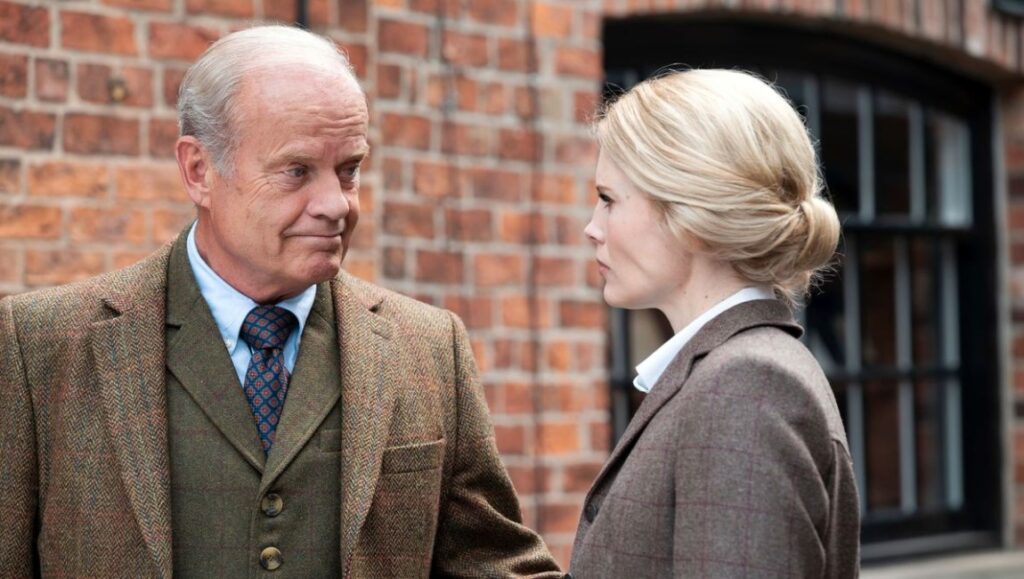Miss Willoughby and the Haunted Bookshop rides its quaint aesthetic all the way to feeling already dated.
On paper, Brad Watson’s Miss Willoughby and the Haunted Bookshop has all the necessary goods to deliver a perfectly enjoyable, entertaining flick. Half detective story, half ghost tale, all taking place in the Northeastern English countryside of York where rows of beautiful, old brick buildings line cobbled streets, the film — at least in its initial outlook — promises to be one of those well-known British policiers imbued with an aura of suspense and mystery. Miss Willoughby quickly introduces the story of a young girl, Elizabeth Willoughby, who after tragically losing her father is fostered by one of his military officer friends. U.S. mariner Robert Thompson (played by Kelsey Grammer when the film jumps ahead) proceeds to train little Elizabeth both physically (martial arts and boxing) and mentally (chess and literature) at a majestic family manor. Years quickly fly by, and the film cuts to the 40-ish Elizabeth (Nathalie Cox), now an elegant, well-mannered, and even sexy ancient history professor who teaches at a local university. But just as viewers are primed to watch a complicated drama of puzzles and thrills — after a family friend asks Elizabeth to investigate (more in a private detective capacity) a series of suspicious haunting incidents at the town bookstore Deakin’s — the larger story begins to feel much less captivating than its logline suggests, and its early promise notably wanes.
Saddled with an increasingly unengaging plot, a series of long-winded dialogues, plenty of drab situations, and a few unchallenging twists, the screenplay is a notably lackluster affair. Indeed, it mostly fails at meeting even the most modest expectations for this type of film — those of a particularly English character that mount investigations of either paranormal events or spectacular crimes and which often lead to long-concealed family and/or local history secrets, not far from the Agatha Christie mold. But what saves Miss Willoughby from becoming an abject flop is Watson’s tasteful and quaint (even if, academic) visualism, due in no small part to the posh costuming and ravishing set designs, not to mention the allure of the gorgeous locations, which are beautifully, cleanly captured by Watson and DP Ross W. Clarkson. The tender chemistry between the leading duo of Cox and Grammer offers another mild hook for a film with a relative lack of meaningful incident; even if the former isn’t entirely convincing as a professor-turned-detective, the latter’s well-grounded work acts as a solid anchor for the film’s ostensible core.
Miss Willoughby can best be regarded, then, as a quite typical, overly generic work that is nonetheless filled with plenty of visual charm, its lack of substantial wit compensated for with colorful, trimmed images. Adam Langston’s overshadowing score threatens to drown out these mild pleasures, but it’s still ultimately a harmless and unassuming film which its target could easily enjoy with a cup of tea in hand as a bit of casual, escapist Sunday afternoon fodder. It’s a film sketched with an antique aesthetic that situates it somewhere in between Enola Holmes and Knives Out, but with a more old-fashioned sensibility than the former and dramatic development and thrust than the latter. Indeed, despite its small charms, Miss Willoughby and Haunted Bookshop is so committed to this throwback vibe and its TV-quality mystery that it already feels preternaturally aged, even upon its release.
Published as part of Before We Vanish — February 2022.


Comments are closed.